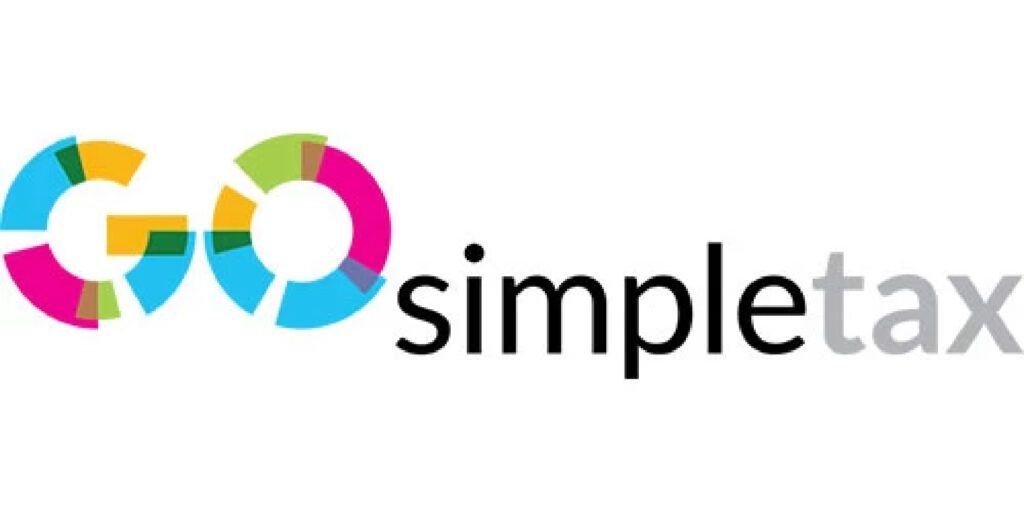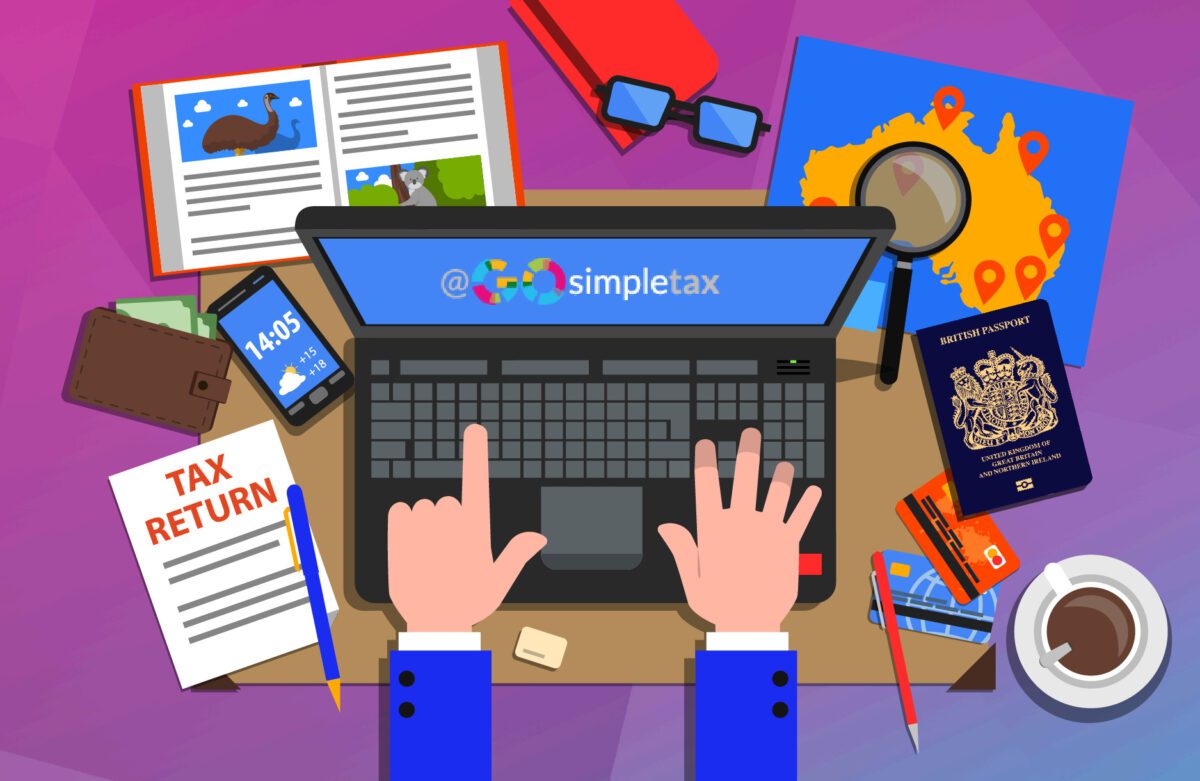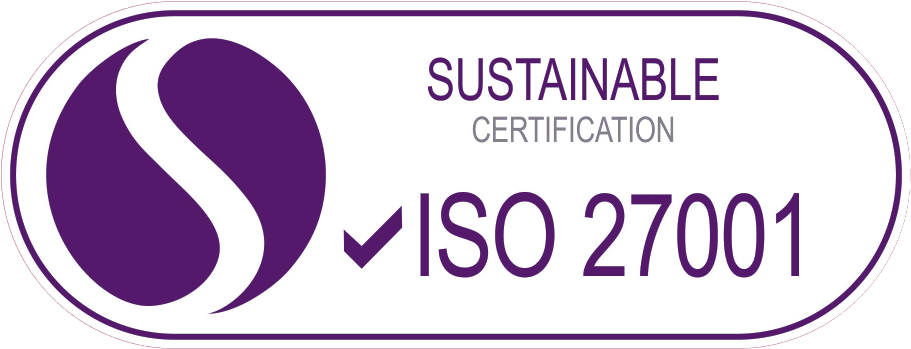Article by GoSimpleTax
The UK’s long-lasting love affair with Australia continues. In fact, it’s growing even stronger, with record numbers of Brits now heading to the Land Down Under.
A significant increase in working holiday visas (WHV) is a key driver. Changes to WHV rules (the age limit has gone up by five years to 35) means many more Brits can go and work in Australia for up to three years. While some continue to move permanently, some 50,000 British citizens a year are in “Straya” on a WHV. You may be one of them or considering becoming one. Naturally, you will want to know what tax you’ll pay.
Did you know? About 1.1m people in Australia are UK born, making up 14% of its overseas-born population and 4.3% of the total Aussie population.
What Australian tax will you pay as a WHV holder?
- WHV holders are taxed as non-residents under Australian tax rules.
- If you earn wages in Australia, your employer will deduct tax from your earnings at working holiday-maker rates. Bank interest and dividend payments may also be taxed by the Australian Taxation Office (ATO) at non-resident rates.
- Tax rates for working holiday makers for the 2025/26 tax year are:
- 15% on earnings up to AUS$45,000 (£21,650);
- $45,001-$135,000 (£21,650-£65,000) $6,750 plus 30c for each $1 over $45,000;
- $135,001-$190,000 (£65,000-£91,500) $33,750 plus 37c for each $1 over $135,000 (source: ATO).
Need to know! Before you start work in Australia, you must apply online for a tax file number after getting your visa and then complete a TFN declaration for your employer.
Paying UK tax in Australia on a WHV
If you leave the UK to live and work abroad, and meet certain conditions (typically, you work full-time abroad and remain outside the UK for at least one tax year), thanks to split-year treatment, UK tax on employment income stops when you leave the UK. So, your Aussie wages are not taxable in the UK.
Alternatively, you can remain a UK tax resident for the full tax year and pay UK tax on your Aussie income, but you can claim a UK tax credit for any Aussie tax paid, thanks to the UK and Australia Double Tax Agreement. Such agreements prevent double payment of tax by people and businesses in two countries.
- You’re non-resident if you: spent less than 16 days in the UK within a tax year (or 46 days if you have not been a UK resident for the three previous tax years); worked abroad full-time (averaging at least 35 hours a week), spent fewer than 91 days in the UK and worked no more than 30 of them.
Normally, you must pay tax on your UK income, even if you’re not a UK resident or you’re living and working in Australia on a WHV. This can include pension payments, wages from UK employment, savings interest and rental income.
Need to know! If you receive income from the UK, such as rental income, dividend payments or interest, you’ll also need to declare it in your Australian tax return. The Australian tax year runs from 1 July to the following 30 June.
Paying UK tax on UK rental income
Many Brits who go to live and work in Australia for a few months or more or rent out their home in the UK, which can help to pay their living costs Down Under.
If you earn more than £1,000 from renting out a UK property or properties, it’s subject to Income Tax once your total UK taxable income goes over the Personal Allowance threshold (£12,570 a year in 2025/26).
If you live outside of the UK for six months or more a year, HMRC classes you as a “non-resident landlord”. You can get the full amount of rent from your tenant(s) and pay tax on it to HMRC via Self Assessment. If so, you must apply by filling out the NRL1i form, which you send to HMRC.
Alternatively, any tax payable can be deducted by your letting agent or tenant, who must pay it to HMRC. They will deduct the basic rate of tax from the monthly rent (minus their expenses if they’re an agency) and give you a certificate at the end of the tax year showing how much tax they’ve deducted.
You must keep accurate records of your rental income and tax expenses you claim, because HMRC can ask for proof of your figures. You must keep your income and expense records for at least five years after the filing deadline.
Need to know! As a landlord, you can claim “allowable expenses” to cover things you pay for to rent out your property. This can reduce your UK tax bill significantly.
How to report your taxable UK income from Australia
If you live in Australia and have taxable UK income to report to HMRC, you must fill out and file a Self Assessment tax return (SA100), as well as resident supplementary pages (the SA109 form) to report your residence and domicile status.
- If you earn UK taxable rental income, you must also complete and file supplementary tax return pages SA105.
- You may need to file other supplementary pages, depending on your taxable UK income sources.
Need to know! You cannot use HMRC’s online services to file your Self Assessment tax return and supplementary pages if you’re living in Australia. You can either fill out the forms by hand and send them back by post (which is a faff), pay a UK-based accountant to sort it all out for you (which is the most expensive option) or use commercial Self Assessment filing software (which is cheaper and simple enough).
- The UK tax year runs from 6 April until 5 April.
- The online filing deadline is midnight on 31 January following the end of the tax year to which the tax return relates.
- You need to register for Self Assessment if you haven’t done so before.
What if you were UK employed or self-employed before you came to Australia?
If you move to Australia part way through a tax year, UK tax authority HMRC will treat you as a UK resident for the portion of the tax year when you were resident in the UK. If you qualify for “split-year treatment”, you won’t pay any UK tax on Aussie earnings after you leave the UK.
However, you could have UK tax to pay on income from self-employment, renting out property or other sources. If so, obviously, you’ll need to fill out and file a Self Assessment tax return to report your taxable earnings while you were still resident in the UK.
About GoSimpleTax
Record Income, Expenses and tax submission all in one.
GoSimpleTax is the solution for non-residency returns, the self-employed, sole traders, freelancers and anyone with income outside of PAYE.
The software will provide you with hints and tips that could save you money on allowances and expenses you may have missed.
Get started with GoSimpleTax today, it’s free to try.



